Joseph Smith
SEARCH BY TITLE
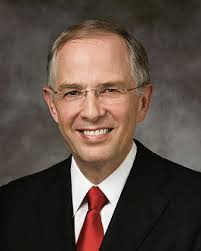 Joseph Smith
Joseph Smith
Joseph Smith is the prophet of the Restoration. His spiritual work began with the appearance of the Father and the Son, followed by numerous heavenly visitations. He was the instrument in God’s hands in bringing forth sacred scripture, lost doctrine, and the restoration of the priesthood. The importance of Joseph’s work requires more than intellectual consideration; it requires that we, like Joseph, “ask of God.” Spiritual questions deserve spiritual answers from God. Many of those who dismiss the work of the Restoration simply do not believe that heavenly beings speak to men on earth. Impossible, they say, that golden plates were delivered by an angel and translated by the power of God. From that disbelief, they quickly reject Joseph’s testimony, and a few unfortunately sink to discrediting the Prophet’s life and slandering his character. We are especially saddened when someone who once revered Joseph retreats from his or her conviction and then maligns the Prophet. “Studying the Church … through the eyes of its defectors,” Elder Neal A. Maxwell once said, is “like interviewing Judas to understand Jesus. Defectors always tell us more about themselves than about that from which they have departed.”. . . To questions about Joseph’s character, we might share the words of thousands who knew him personally and who gave their lives for the work he helped establish. John Taylor, who was shot four times by the mob that killed Joseph, would later declare: “I testify before God, angels, and men, that [Joseph] was a good, honorable, [and] virtuous man— … [and] that his private and public character was unimpeachable—and that he lived and died as a man of God.”
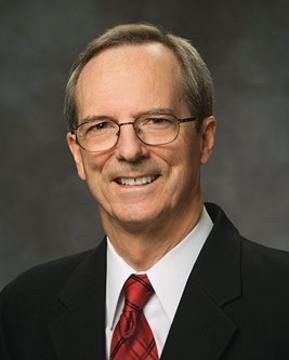 Joseph Smith – Prophet of the Restoration
Joseph Smith – Prophet of the Restoration
Suppose for a moment someone told you these three facts about a New Testament personality and nothing more: first, the Savior said of this man, “O thou of little faith” (Matthew 14:31); second, this man, in a moment of anger, cut off an ear of the high priest’s servant; and third, this man denied knowing who the Savior was on three occasions, even though he had walked with Him daily. If that is all you knew or focused upon, you might have thought this man a scoundrel or a no-good, but in the process you would have failed to come to know one of the greatest men who ever walked the earth: Peter the Apostle. Similarly, attempts have been made by some to focus upon or magnify some minor weaknesses of the Prophet Joseph Smith, but in that process they too have missed the mark, the man, and his mission. Joseph Smith was the Lord’s anointed to restore Christ’s Church to the earth. When he emerged from the grove of trees, he eventually learned four fundamental truths not then taught by the majority of the contemporary Christian world. . . Through Joseph Smith have been restored all the powers, keys, teachings, and ordinances necessary for salvation and exaltation. You cannot go anywhere else in the world and get that. It is not to be found in any other church. It is not to be found in any philosophy of man or scientific digest or individual pilgrimage, however intellectual it may seem. Salvation is to be found in one place alone, as so designated by the Lord Himself when He said that this is “the only true and living church upon the face of the whole earth”.
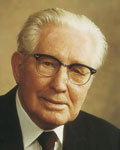 Profile of a Prophet
Profile of a Prophet
Perhaps I can do this more quickly by referring to an interview I had in London, England, in 1939, just before the outbreak of the war. I had met a very prominent English gentleman, a member of the House of Commons, formerly one of the justices of the supreme court of England. In my conversations with this gentleman on various subjects—“vexations of the soul,” he called them—we talked about business, law, politics, international relations, and war, and we frequently discussed religion. He called me on the phone one day and asked if I would meet him at his office and explain some phases of the gospel. He said, “I think there is going to be a war. If there is, you will have to return to America and we may not meet again.” His statement regarding the imminence of war and the possibility that we would not meet again proved to be prophetic. When I went to his office he said he was intrigued by some things I had told him. . . We agreed between us that the following characteristics should distinguish a man who claims to be a prophet: 1. He will boldly claim that God had spoken to him. 2. Any man so claiming would be a dignified man with a dignified message—no table jumping, no whisperings from the dead, no clairvoyance, but an intelligent statement of truth. 3. Any man claiming to be a prophet of God would declare his message without any fear and without making any weak concessions to public opinion. 4. If he were speaking for God he could not make concessions, although what he taught would be new and contrary to the accepted teachings of the day. A prophet bears witness to what he has seen and heard and seldom tries to make a case by argument. His message and not himself is important. 5. Such a man would speak in the name of the Lord, saying, “Thus said the Lord,” as did Moses, Joshua, and others.6. Such a man would predict future events in the name of the Lord, and they would come to pass, as did those predicted by Isaiah and Ezekiel. 7. He would have not only an important message for his time but often a message for all future time, such as Daniel, Jeremiah, and others had. 8. He would have courage and faith enough to endure persecution and to give his life, if need be, for the cause he espoused, such as Peter, James, Paul, and others did. 9. Such a man would denounce wickedness fearlessly. He would generally be rejected or persecuted by the people of his time, but later generations and descendants of his persecutors would build monuments in his honor. 10. He would be able to do superhuman things—things that no man could do without God’s help. The consequence or result of his message and work would be convincing evidence of his prophetic calling: “By their fruits ye shall know them”. 11. His teachings would be in strict conformity with scripture, and his words and his writings would become scripture. “For the prophecy came not in old time by the will of man: but holy men of God spake as they were moved by the Holy Ghost”. Now I have given but an outline that you can fill in and amplify and then measure and judge the Prophet Joseph Smith by the work and stature of other prophets.
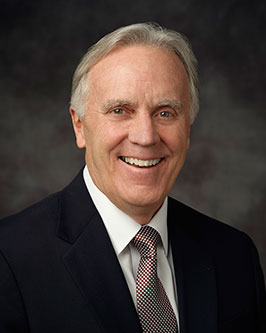 The Prophet Joseph Smith
The Prophet Joseph Smith
There is no dispute about what Joseph Smith accomplished, only how he did what he did and why. And there are not many options. He was either pretender or prophet. Either he did what he did alone, or he had the help of heaven. Look at the evidence, but look at all of the evidence, the entire mosaic of his life, not any single piece. Most importantly, do as young Joseph and “ask … God, that giveth to all men liberally, and upbraideth not; and it shall be given [you].” This is not only how you may learn the truth about the Book of Mormon and Joseph Smith; it is also the pattern to know the truth of all things. Joseph Smith was a prophet of God, as is Thomas S. Monson today. Through Joseph Smith, “the keys of the kingdom of God are [again] committed unto man on the earth, and … the gospel [will] roll forth … as the stone which is cut out of the mountain without hands … , until it has filled the whole earth.” God is our Eternal Father, and Jesus is the Christ. We worship Them. Nothing compares with Their creations, the plan of salvation, and the atoning sacrifice of the Lamb of God. In this dispensation, we fulfill the plan of the Father and partake of the fruits of the Atonement only by obedience to the laws and ordinances of the gospel, restored through the Prophet Joseph Smith.
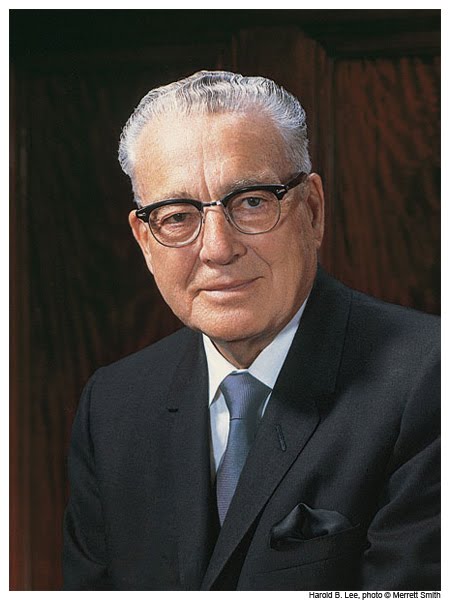 Safety In Obedience
Safety In Obedience
A few years ago, we had a woman who had written some scurrilous things about the Prophet Joseph Smith. (Mention was made of it here in the conference at that time.) Shortly thereafter, I met someone on the street and they asked me if there had been a revelation or an utterance at the recently concluded general conference that might be considered as a prophecy. And I said, “Did you hear the closing remarks of President George Albert Smith as he closed the conference? If you did, you heard a prophet speaking, and let me tell you what he said.” I happened to have a clipping in my wallet. This is what President George Albert Smith said: “Many have belittled Joseph Smith, but those who have will be forgotten in the remains of mother earth, and the odor of their infamy will ever be with them, but honor, majesty, and fidelity to God, exemplified by Joseph Smith and attached to his name, will never die.” No truer words were ever spoken, and that person fell just as all others will fall who try to tear down the work of the Lord. We have had some who, writing in the public press occasionally, are among those who have fallen by the wayside. They befoul the honored family names that they have. They have disgraced the honors that we had given to them in times past. They are trying to join the forces of the enemy against the work of the Lord. And we can say to them, as President George Albert Smith said then, “Those who have will be forgotten in the remains of mother earth, and the odor of the infamy will ever be with them, but honor, majesty, and fidelity to God, exemplified by the leaders of this church and attached to their names, will never die.” I always remember the word of the Lord when I hear these things said by those who are trying to tear down his work. The Lord has said: “Wherefore, confound your enemies; call upon them to meet you both in public and in private; … “Wherefore, let them bring forth their strong reasons against the Lord. “Verily, thus saith the Lord unto you—there is no weapon that is formed against you, shall prosper; “And if any man lift his voice against you he shall be confounded in mine own due time. “Wherefore, keep my commandments. …” What he is trying to have us understand is that he will take care of our enemies if we continue to keep the commandments. So, you Saints of the Most High God, when these things come, and they will come—this has been prophesied—you just say, “No weapon formed against the work of the Lord will ever prosper, but all glory and majesty of this work that the Lord gave will long be remembered after those who have tried to befoul their names and the name of the Church will be forgotten, and their works will follow after them.”
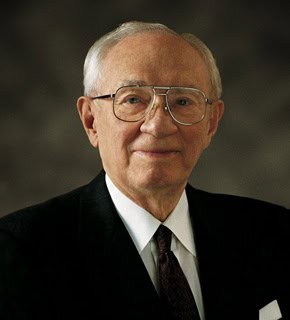 The Stone Cut Out of the Mountain
The Stone Cut Out of the Mountain
I take you back 184 years to the year 1823. The month was September—the night of September 21–22, to be exact.The boy Joseph Smith had prayed that night before going to sleep. He asked the Lord for forgiveness of his light-mindedness. A miraculous thing then happened. He says:“While I was thus in the act of calling upon God, I discovered a light appearing in my room, which continued to increase until the room was lighter than at noonday, when immediately a personage appeared at my bedside. … “He called me by name, and said unto me that he was a messenger sent from the presence of God … and that his name was Moroni; that God had a work for me to do; and that my name should be had for good and evil among all nations, kindreds, and tongues, or that it should be both good and evil spoken of among all people” (Joseph Smith—History 1:30, 33). The boy must have been stunned by what he heard. In the eyes of those who knew him, he was simply a poor, unlearned farm boy. He had no wealth. His neighbors were in the same condition. His parents were struggling farmers. The area where they lived was rural and largely unknown. They were simply ordinary people trying to survive through hard work. And yet an angel of God said that Joseph’s “name should be had for good and evil among all nations, kindreds, and tongues.” How could it be? That description fits the entire world. Now, as we look back 177 years to the organization of the Church, we marvel at what has already happened. When the Church was organized in 1830 there were but six members, only a handful of believers, all residing in a largely unknown village. Today, we have become the fourth or fifth largest church in North America, with congregations in every city of any consequence. Stakes of Zion today flourish in every state of the United States, in every province of Canada, in every state of Mexico, in every nation of Central America and throughout South America. Congregations are found throughout the British Isles and Europe, where thousands have joined the Church through the years. This work has reached out to the Baltic nations and on down through Bulgaria and Albania and other areas of that part of the world. It reaches across the vast area of Russia. It reaches up into Mongolia and all down through the nations of Asia into the islands of the Pacific, Australia, and New Zealand, and into India and Indonesia. It is flourishing in many of the nations of Africa. Our general conferences are carried by satellite and other means in 92 different languages. And this is only the beginning. This work will continue to grow and prosper and move across the earth. It must do so if Moroni’s promise to Joseph is to be fulfilled. This work is unique and wonderful. It is fundamentally different from every other body of religious doctrine of which I know.
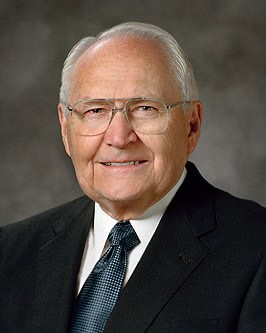 The Value of a Good Name
The Value of a Good Name
It has always been interesting to me that the Prophet Joseph Smith was the third son of Joseph and Lucy Mack Smith. He had two older brothers, yet the name of Joseph was preserved for him. Who could doubt that his life was the fulfillment of the great promise made to Joseph of old that through his lineage would come that great saving power of the gospel of our Lord and Savior. Let us just look briefly at the life of the Prophet Joseph Smith and how that promise was literally fulfilled. Few prophets have come from more humble beginnings than those of the Prophet Joseph Smith. He was the fifth child in a family of 11. The rugged, rocky soil of New England had not been good to his family. The climate limited the growing season. During Joseph Smith’s early years, his family moved frequently, trying to find fertile soil for a suitable livelihood. They moved from Sharon to Tunbridge, then on to Royalton, Vermont. In 1811 they moved to the small community of West Lebanon, New Hampshire, and began, as his mother said, “to contemplate, with joy and satisfaction, the prosperity which had attended our recent exertions” (Lucy Mack Smith, History of Joseph Smith [Salt Lake City: Bookcraft, 1958], p. 51). But typhoid fever came to West Lebanon in a terrible epidemic. The epidemic swept through the upper Connecticut valley and left 6,000 people dead. One by one the Smith children fell ill. It was then that Joseph had the illness and accompanying complications that eventually required surgery. The Lord again showed his hand by providing one of the few surgeons who could perform the delicate operation that saved Joseph’s life and prepared him for the future that was ahead. . . Out of this hard, difficult beginning, Joseph Smith developed a great reliance on the Lord, trusting in him to gain the exceptional spiritual strength needed so that he could be used by the Lord to organize his church again on the earth. To organize the work to begin this dispensation, the Lord needed a pure spirit, unlearned in the things of the world. He had to have one who could be taught by the ministration of angels. There was no earthly teacher equipped to do this training. The would-be prophet had to be truly sensitive to the Spirit, a quick learner, and a young man of exceedingly great faith—faith enough to approach the Lord after being impressed by reading James 1:5, which reads, “If any of you lack wisdom, let him ask of God, that giveth to all men liberally, and upbraideth not; and it shall be given him.”
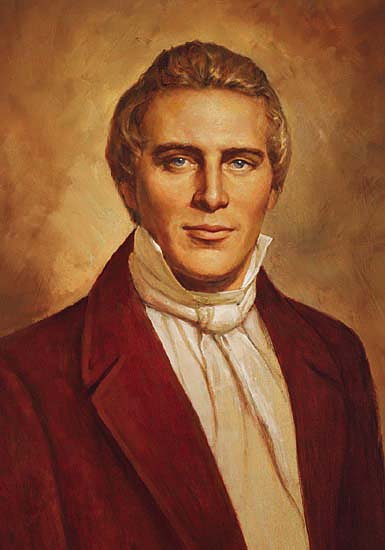 Wentworth Letter
Wentworth Letter
John Wentworth, editor of the Chicago Democrat, wrote Joseph Smith in 1842 to request information about the Church for a friend who was writing a history of New Hampshire. The “Wentworth Letter” was written by the Prophet Joseph Smith in response to this inquiry. The letter contains a brief History of the Church to 1842, including the key events in the restoration of the gospel. It states that the purpose of the Church is to take the gospel to every nation and prepare a people for the Millennium. The letter also describes concisely the origin, contents, and translation of the Book of Mormon. It concludes with thirteen doctrinal statements that have since become known as the Articles of Faith and are published in the Pearl of Great Price (HC 4:535-41). The contents of this letter were published March 1, 1842, in the Nauvoo Times and Seasons. There is no evidence that Wentworth or his friend, George Barstow, ever published it. In response to other inquiries in 1844, Joseph Smith sent revised copies of this letter to several publishers of works about various churches and religious groups. It has been published several times over the years. . . At the request of Mr. John Wentworth, Editor, and Proprietor of the “Chicago Democrat,” I have written the following sketch of the rise, progress, persecution, and faith of the Latter-Day Saints, of which I have the honor, under God, of being the founder. Mr. Wentworth says, that he wishes to furnish Mr.Bastow, a friend of his, who is writing the history of New Hampshire, with this document. As Mr. Bastow has taken the proper steps to obtain correct information, all that I shall ask at his hands is that he publish the account entire, ungarnished, and without misrepresentation.
